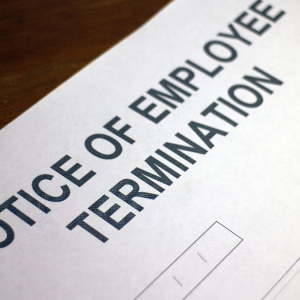In a move that has been long awaited by families, business owners, and frequent travelers, the United Arab Emirates is preparing to lift its ban on citizens traveling to Lebanon. The development signals a significant shift in diplomatic warmth and regional cooperation, reviving personal, cultural, and economic ties between the two nations.
Why the Ban Existed
The UAE’s travel restriction to Lebanon was first imposed due to heightened security concerns. Over the past several years, political instability and safety challenges in Lebanon prompted the UAE, alongside other Gulf countries, to advise their citizens against traveling there. While diplomatic relations were never severed, a clear distance was maintained. The lifting of this ban comes as a clear indicator of trust being gradually rebuilt.
The UAE Ministry of Foreign Affairs has been working closely with Lebanese authorities, ensuring the necessary protocols are in place to protect Emirati citizens abroad. The decision also reflects confidence in Lebanon’s improving security landscape and a shared vision to reestablish safe tourism and business exchanges.

A Boost for Bilateral Ties
This diplomatic gesture is expected to reinvigorate UAE-Lebanon relations on multiple fronts. Business leaders from both countries have welcomed the announcement with optimism. With Lebanese entrepreneurs long reliant on trade and investment from the Gulf, the move opens fresh doors.
The UAE is home to a significant Lebanese expatriate population, many of whom maintain deep familial and business ties with their home country. The ban had made it emotionally and logistically difficult for some residents to travel back and forth freely. Its removal is not just symbolic—it’s deeply personal for many.

According to UAE-based business owners, the ban had also slowed investments in Lebanon’s tourism and hospitality sector, which is now expected to receive a much-needed lifeline. With the return of Emirati tourists and investors, there is hope that Beirut’s boutique hotels, coastal resorts, and restaurants will begin to flourish once again.
What This Means for Travelers

For Emirati citizens eager to visit Lebanon, this policy shift means much more than convenience. Lebanon, with its rich history, Mediterranean charm, and cultural vibrance, has always held appeal for Gulf travelers. With the ban lifted, many are already planning summer holidays to explore the Cedars of God, the Roman ruins in Baalbek, and the culinary scenes of Beirut.
The UAE’s travel advisory portal is expected to be updated in the coming days, providing detailed guidelines for citizens heading to Lebanon. Travelers can also monitor the official page of the UAE Ministry of Foreign Affairs for the latest instructions and safety updates.
Travel agencies in Dubai and Abu Dhabi are reportedly seeing a rise in inquiries for packages to Beirut and surrounding regions. Some airlines are preparing to expand flight routes and frequencies to accommodate the growing interest, anticipating a steady demand once the change is formally announced.
Community Voices: A Welcome Change
Many Lebanese residents in the UAE expressed heartfelt relief upon hearing the news. For some, it means finally being able to attend weddings, funerals, and family gatherings without restrictions. For others, it’s the first real chance in years to take their Emirati-born children to visit their ancestral homeland.
Dalia Hariri, a Lebanese business consultant in Dubai, shared, “This is huge. My husband is Emirati, and we’ve had to keep putting off visiting my parents. The ban meant we either traveled separately or didn’t go at all. This decision brings us closer as a family.”
Similarly, Emiratis with strong cultural ties to Lebanon see the ban’s lifting as a bridge to reconnect. The two nations have long shared cross-cultural ties, including a love for food, arts, and music. Events like Dubai’s Lebanese Food Festival and the popularity of Lebanese TV shows in the UAE underscore this bond.
Safety First: What to Expect Going Forward
While the ban has been lifted, officials stress that this does not mean a free-for-all. The UAE government has emphasized the importance of adhering to safety recommendations while abroad. The Ministry urges travelers to stay informed, register with consular services during their stay, and maintain communication with embassies in case of emergency.
Lebanon’s own tourism board has expressed readiness to welcome visitors back from the UAE. Hotels, tour operators, and local authorities are being briefed to ensure that infrastructure and security services are aligned with the expectations of international guests.
Looking Ahead: A Model for Regional Reconciliation
This policy change reflects a wider trend in the region—a shift toward diplomacy, dialogue, and rebuilding. As nations across the Middle East work to repair fractured relationships and build bridges, the UAE’s move sets a powerful precedent. It shows that trust can be restored, and that progress is possible when both sides commit to shared goals.

Moreover, it opens the door for future collaboration across sectors. Education, energy, tech, and tourism may soon see joint ventures arise between Emirati and Lebanese firms, especially in a post-pandemic world where economic resilience depends on strong partnerships.
Final Thoughts
The lifting of the UAE’s travel ban to Lebanon is more than a policy revision—it is a declaration of renewed goodwill, a gesture of regional unity, and a lifeline for thousands of families and businesses. For travelers, it means rediscovering a land of beauty and history. For both countries, it marks a hopeful new chapter.
As borders reopen and conversations flow more freely, one thing is clear: diplomacy still holds the power to move people—not just politically, but emotionally and physically—across the borders that once kept them apart.
Would you like a follow-up story on UAE-Lebanon economic ties or a profile feature on travelers from the UAE heading to Lebanon soon?












